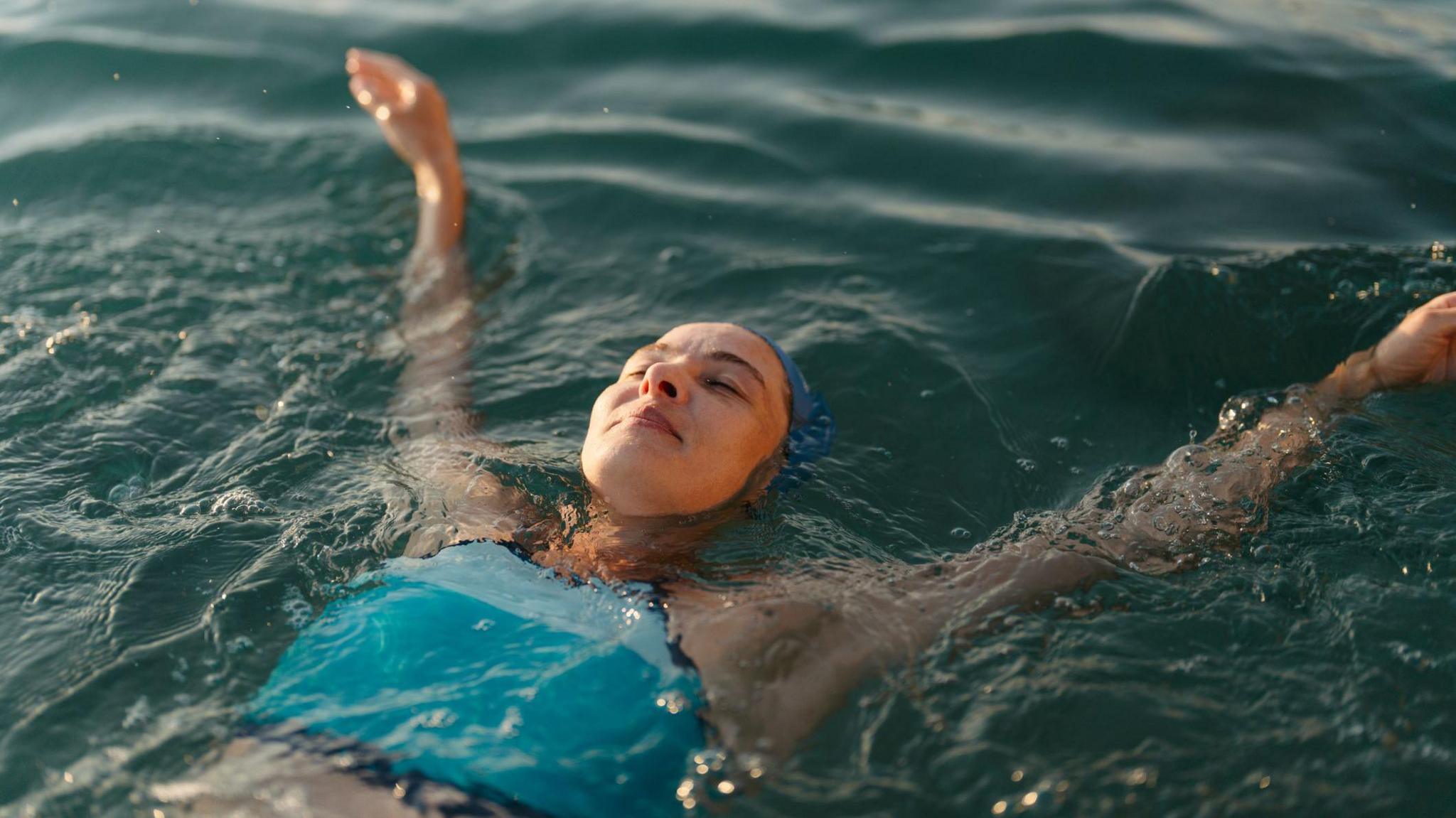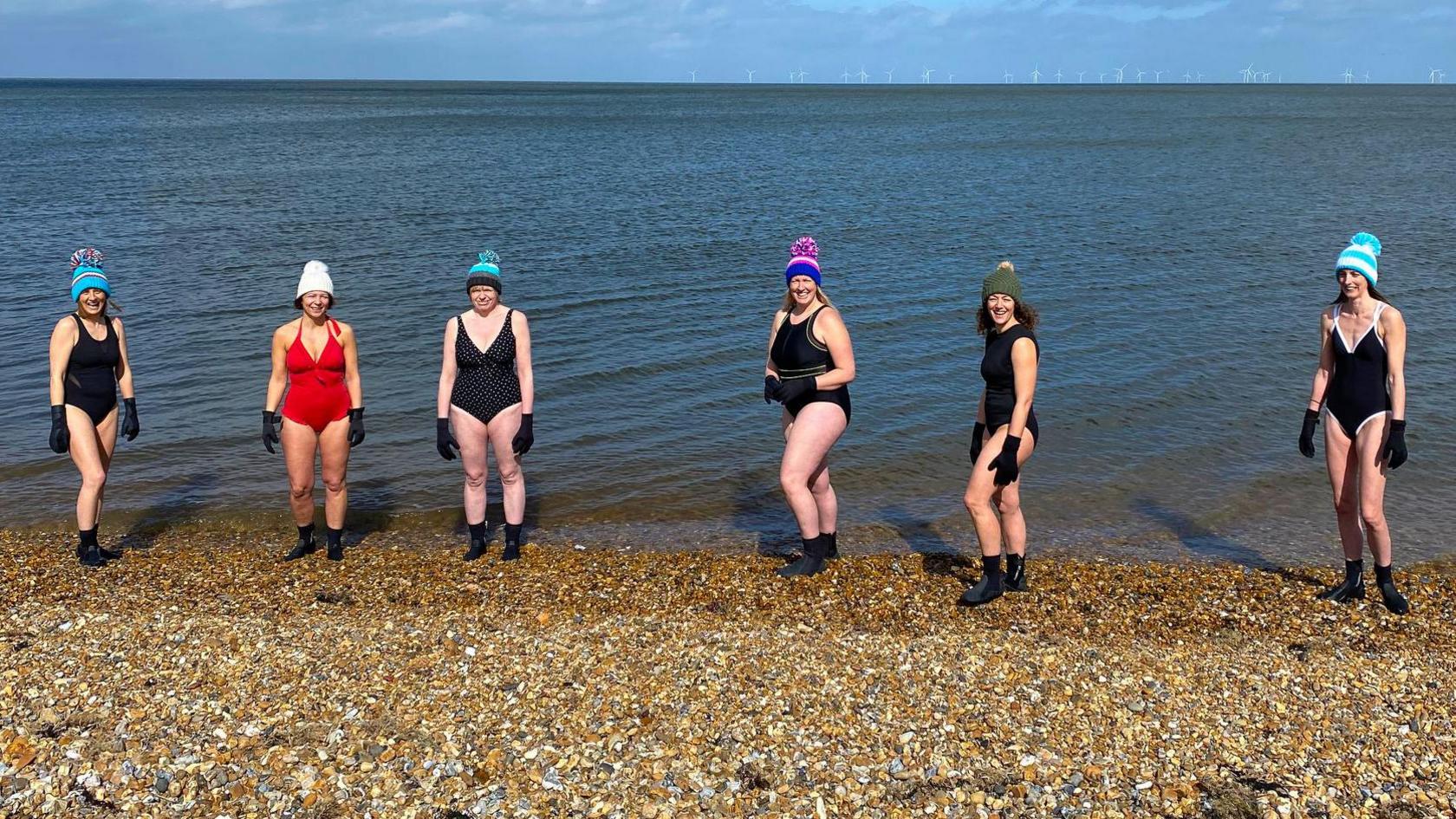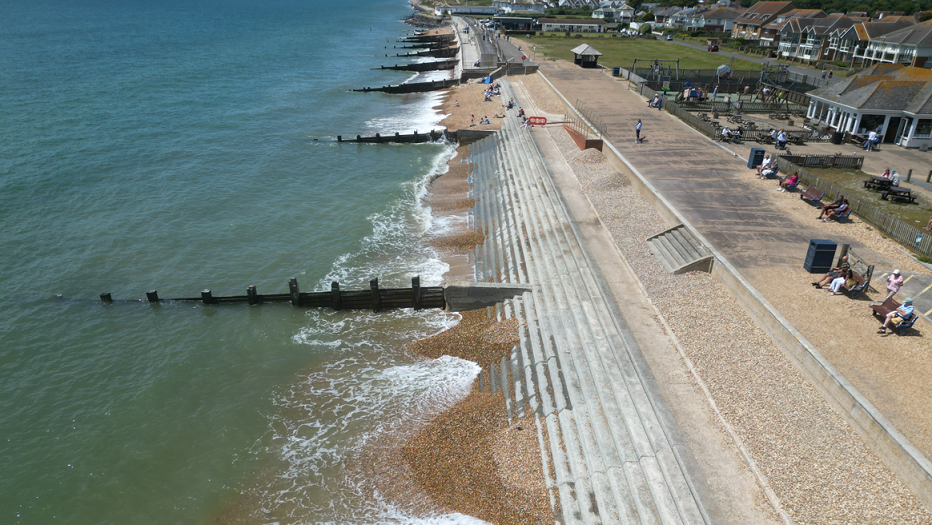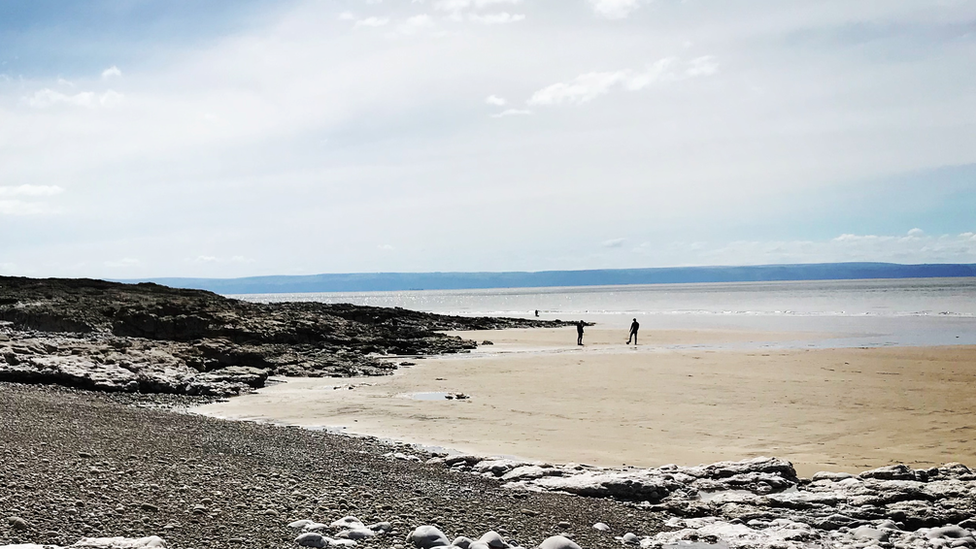Study calls for safer wild swimming for women

Researchers are calling on the UK government and water companies to improve safety for female open water swimmers
- Published
More support is needed to make wild bathing sites safer for women, a study has found.
About 64% of women who participated in cold water swimming said they usually did so in the sea, according to research from the University of Portsmouth and Bournemouth University.
But the study warned pollution in UK waters could increase the likelihood of gastroenteritis and other infections.
The Department for Environment, Food and Rural Affairs (Defra) said it shared the public's concern and had taken immediate steps to reverse the "unacceptable destruction of our waterways".

Women between the ages of 16 and 80 were surveyed about their cold water swimming habits
The research was led by experts from University College London (UCL), who surveyed 1,114 women.
About 89% said they went in the sea all year round.
But designated bathing waters in the UK are typically only monitored during the summer months - from May to September.
Co-author Dr Mark Harper, from the University Hospitals Sussex NHS Foundation Trust, said the government's bathing-water quality website ignored the winter months, where "heavy rainfall and consequent sewage overflow" most commonly occurred.
Lead author Prof Joyce Harper, from UCL, said the risks could be avoided with "better monitoring of sites".
'Numerous benefits'
The study, which also involved the University of Sussex and the University of Plymouth, found cold water swimming improved the physical and mental health of menopausal women.
The sport also helped women with menstrual symptoms.
Co-author Prof Sasha Roseneil, from the University of Sussex, said: "In recent years cold water swimming has become a passion for many thousands of women across the UK, bringing numerous benefits to well-being.
"Whilst the free and unregulated nature of swimming in open water is part of its attraction, it is time for the government and regulators to pay serious attention to the quality of our rivers, lakes and seas, to protect both swimmers today, and the ecosystems of these precious natural resources for the future."
A Defra spokesperson said its new Water Bill would include powers to ban bonuses and bring criminal charges against law-breakers.
"This government will never look the other way while water companies pump record levels of sewage into our rivers, lakes and seas," they added.
Follow BBC South on Facebook, external, X (Twitter), external, or Instagram, external. Send your story ideas to south.newsonline@bbc.co.uk, external or via WhatsApp on 0808 100 2240, external.
- Published17 August 2024

- Published15 August 2024

- Published19 April 2024
